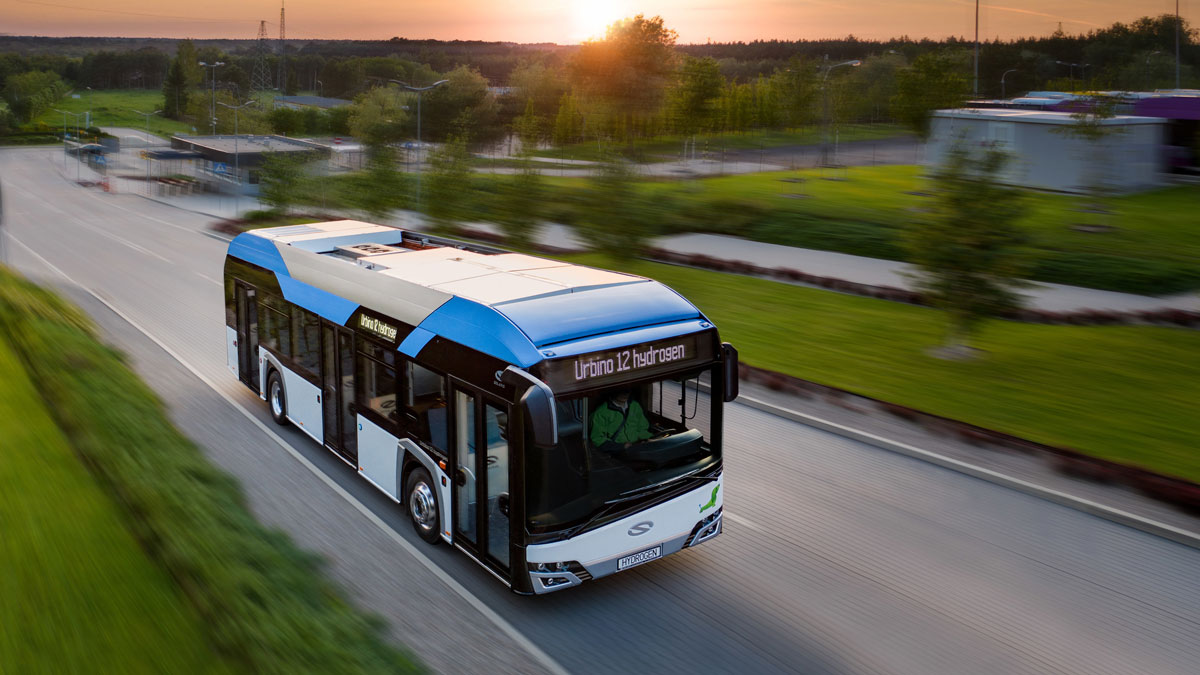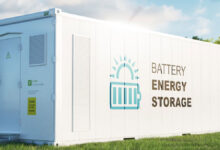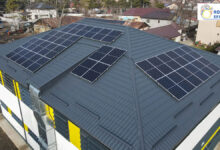Ballard to Power 10 Solaris Buses in Europe
Ballard Power Systems announced purchase orders from Solaris Bus & Coach, a leading European bus and trolleybus manufacturer and Ballard partner headquartered in Bolechowo, Poland, for 10 Ballard FCmove™ fuel cell modules to power 10 Fuel Cell Electric Buses (FCEBs) in the Netherlands. Ballard plans to ship the modules in 2021.
Ballard fuel cell modules will power 10 Solaris Urbino 12 hydrogen buses planned for deployment with Arriva Nederland in the Province of Gelderland, the Netherlands later in 2021. These will replace diesel buses currently in service and are expected to cumulatively travel over 1-million kilometres (620,000 miles) per year.
Each of the single decker Solaris Urbino 12 hydrogen buses is 12-meters (40-feet) long, has 37 seats and total capacity for 85 people, and is capable of traveling 350 kilometres (210 miles) on a single hydrogen refuelling. The buses are designed for maximum passenger comfort and security, with amenities that include air conditioning, a modern passenger information system, built-in USB charging points, wheelchair access, and CCTV cameras.
“With the deployment of these 10 buses, Ballard modules will be powering a total of 67 Solaris buses in The Netherlands, Germany and Italy. The order we are announcing today is indicative of the growing European and global adoption of zero-emission Fuel Cell Electric Buses, driven by recognized benefits such as range, route flexibility, fast refuelling and scalability of refuelling infrastructure, which all contribute to a competitive Total Cost of Ownership, or TCO, in comparison to other zero-emission bus solutions,” Rob Campbell, Ballard Chief Commercial Operator said.
Partial funding for the Netherland deployment is being provided through Europe’s JIVE – or Joint Initiative For Hydrogen Vehicles Across Europe – funding programs, which is intended to pave the way to commercialization of FCEBs by coordinating procurement activities to unlock economies-of-scale and reduce costs as well as supporting new hydrogen refuelling stations. Results of the JIVE programs are expected to demonstrate the technical readiness of FCEBs to bus operators and the economic viability of hydrogen as a zero-emission bus fuel to policy makers. The JIVE programs are supported by a total of EUR 57 million in grants from the Fuel Cells and Hydrogen Joint Undertaking.
Also, in January, Ballard Power Systems announced a purchase order from Arcola Energy, a U.K.-based leader in hydrogen and fuel cell integration specializing in zero-emission solutions for heavy-duty vehicles and transport applications, for Ballard FCmoveTM-HD fuel cell modules to power a passenger train planned for demonstration during COP26, to be hosted by Glasgow City in November 2021. This project will contribute to Scotland’s goal for net zero emissions by 2035.
Scottish Enterprise, Transport Scotland, and the Hydrogen Accelerator, based at the University of St. Andrews, have appointed Arcola and a consortium of industry leaders in hydrogen fuel cell integration, rail engineering and functional safety to deliver Scotland’s first hydrogen-powered train. The consortium will convert a Class 314 car passenger train, made available by ScotRail, into a deployment-ready and certified platform for hydrogen-powered train development. The Bo’ness and Kinneil Railway will provide engineering facilities and support for testing and public demonstrations.
“Hydrogen traction power offers a safe, reliable and zero-carbon alternative for Scotland’s rail network. The hydrogen train project is an excellent opportunity for industry leaders in hydrogen, rail engineering and safety to collaborate with Scottish and other technology providers to develop a deployment ready solution,” Dr. Ben Todd, CEO of Arcola Energy said.
About Ballard Power Systems
Ballard Power Systems’ vision is to deliver fuel cell power for a sustainable planet. Ballard zero-emission PEM fuel cells are enabling electrification of mobility, including buses, commercial trucks, trains, marine vessels, passenger cars and forklift trucks.







